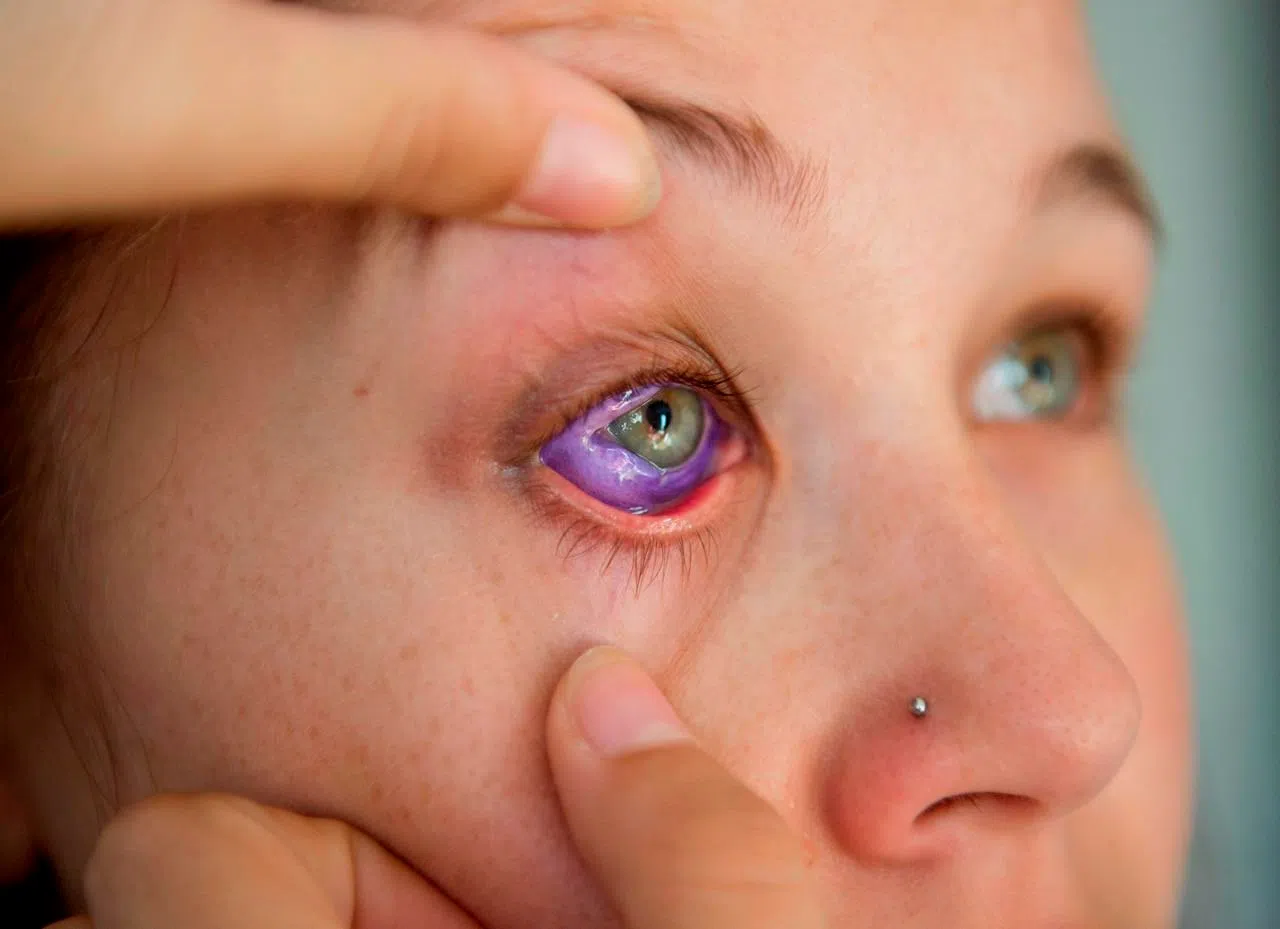
Eyeball tattoos could lead to blindness and severe infections, doctors warn
TORONTO — Medical professionals and body artists say the practice of tattooing the eyeball, which recently left an Ottawa woman facing the prospect of vision loss, is on the rise despite its many risks.
Ophthalmologists and tattoo studios decry the practice, saying it’s very difficult to engage in it safely.
Nonetheless, they say they hear of increasing demand for the extreme form of body modification which involves injecting ink into the whites of the eyes.
A 24-year-old alternative model says she has learned the hard way about the risks of the procedure.


